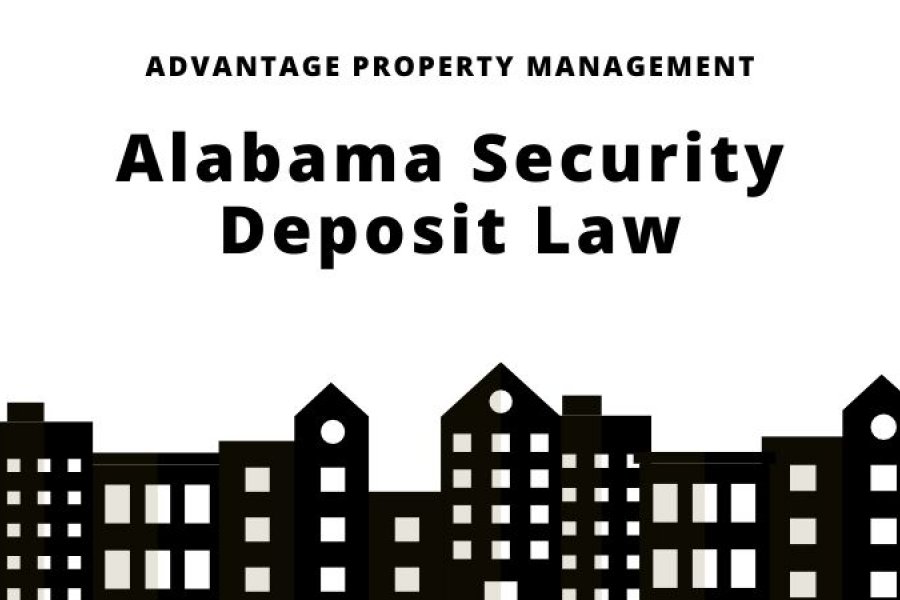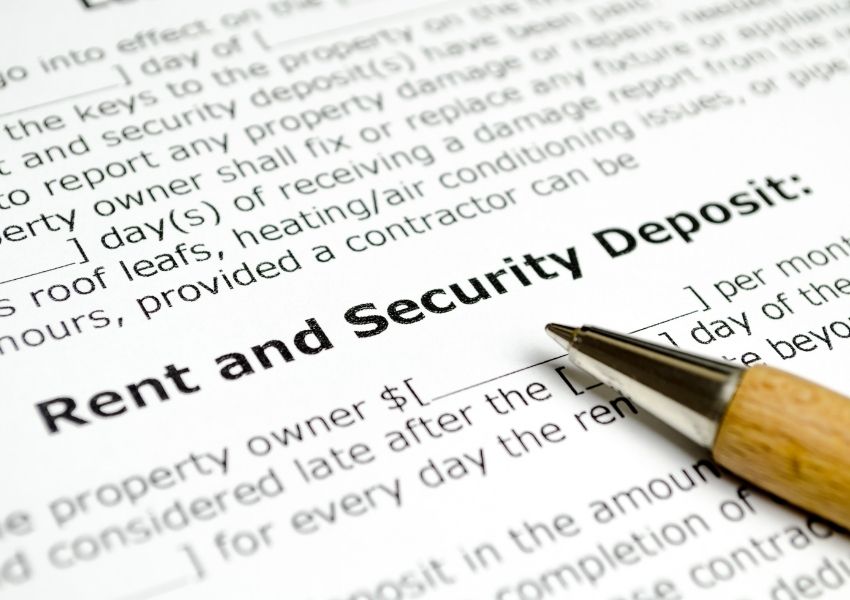
In Alabama, landlords have a legal right to collect a security deposit from their tenants. The deposit acts as a cushion against negligent tenant actions, such as property damage and other breaches to the lease.
But Alabama security deposit law governs how a landlord can both charge and use the deposit. So, it is important for every landlord operating in Alabama to understand how these laws work along with the Alabama landlord-tenant laws.
We at APM Leasing & Management have put together this article to help all landlords understand their obligations and the laws surrounding security deposits in Alabama.
Setting a Security Deposit Limit

As a landlord, you are limited in the value of security deposit you can ask for from your tenant. Specifically, you’re limited to only charging a deposit that is the equivalent of one month’s rent.
You can also charge additional fees such as those for pets or property alterations. But when it comes to pets, you must be cautious not to charge a disabled tenant for having a service animal.
Reasons to withhold a Tenant’s Security Deposit
In the state of Alabama, you can make appropriate deductions to a tenant’s security deposit for the following reasons:
Failure to Pay Rent
Once a tenant signs a lease, they have the responsibility to pay rent for the entire lease term. So, if the tenant stops paying rent, you can withhold part or all their deposit to cover your losses.
The only exception to this is if the tenant has legal justification to withhold rent payments. In the event you have ignored your tenant’s maintenance requests, for instance, they have a right under Alabama security deposit law to withhold further rent payments until you fix them.
Excessive Property Damage
You can hold your tenants liable for damage exceeding normal wear and tear. Such damage includes holes in walls, torn curtain, a missing door handle, and missing tiles.
You cannot, however, hold your tenant liable for damage resulting from normal wear and tear because this damage occurs because of the property’s normal ageing.
Failure to Comply with their Lease Obligations

In Alabama, tenants are required to comply with the following obligations:
- Comply with all relevant safety, health and building codes.
- Maintain the property in a clean, sanitary, and safe state.
- Use all facilities, amenities, and fixtures reasonably.
- Not negligently or deliberately damage, deface, or destroy any part of the premises.
- Respect the peace and quiet enjoyment of their neighbors by not, for instance, throwing large, noisy parties.
- Take care of any damage that exceeds normal wear and tear.
In all these cases, you may take the cost of repairing such damage from your tenant’s security deposit.
Storing a Tenant’s Security Deposit
As per Alabama security deposit law, Alabama does not have requirements on how landlords should store their tenant’s security deposit. So, whether you store your tenant’s deposit in a normal account or an interest-bearing one, the decision is entirely yours to make.
Receipt of Security Deposit
Some states require landlords to provide their tenants with a written notice after receiving their security deposit while others don’t. Alabama belongs to the latter group of states. You aren’t required to provide your tenant with a written notice after receiving your tenant’s deposit.
Completing a Walk Through Inspection
In states like Tennessee, tenants have a right to a walk-through inspection. The inspection occurs a few days prior to a tenant’s move-out, and helps document the property’s condition.
If, during the inspection you find damage exceeding normal wear and tear is found, the tenant will be required to have them fixed before the eventual move-out. Otherwise, if they don’t, the landlord will have a right to make appropriate deductions to their deposit.
But Alabama tenants do not have the right to such an inspection, the state doesn’t require a walk-through inspection prior to a tenant move-out.

Sale of the Rental Property
If you sell your rental property, the incoming landlord will inherit the liability that comes with returning it. So, it’s the buyer’s responsibility to ensure that all tenant’s security deposits are properly transferred to them.
Returning a Tenant’s Security Deposit
In Alabama, landlords must return their tenant’s security deposits within 35 days after their tenant moves out.
If you’ve made any deductions, then, as per Alabama security deposit law, you must send the remaining portion of the deposit alongside an itemized written statement. To clarify, the statement should outline the nature of damage and the approximate repair cost.
- You must send both the remaining portion and the itemized statement via first class or certified mail.
- Your tenant is responsible for providing you a valid forwarding address. If the tenant doesn’t do so, you must send the deposit to their last known address.
If your tenant doesn’t lay a claim on the deposit within 180 days, they forfeit their right to claim it. At that point, it becomes yours to keep.
Security Deposit as Last Month’s Rent
Under ordinary situations, a tenant cannot use a security deposit to pay the last month’s rent. Normally, a deposit is used to provide a financial cushion against loss of rent or any damage caused by a tenant.
That said, a tenant may be able to use the deposit as last month’s rent if there is an agreement between you and them allowing it.
Bottom Line
Alabama security deposit law is complex and if you fail to adhere to these laws, then you may face several financial consequences. Including, paying the tenant up to 2X the security deposit plus any court damages.
So, if you have any questions or comments regarding Alabama security deposit law, evictions or anything else, its best to contact a property management company such as ourselves at APM Leasing & Management.
Disclaimer: This content is only meant to be informational and is not intended to be a substitute for expert legal advice from a qualified attorney or property management company. Additionally, these rules may change at any point leaving this information no longer up to date.